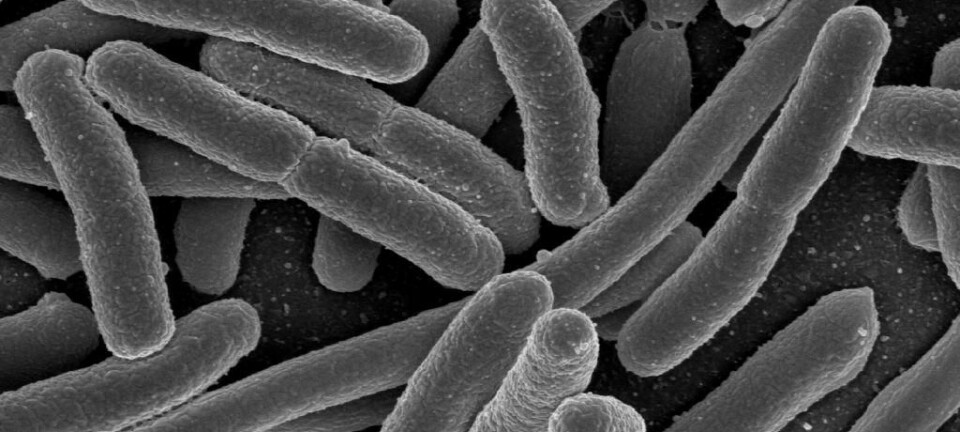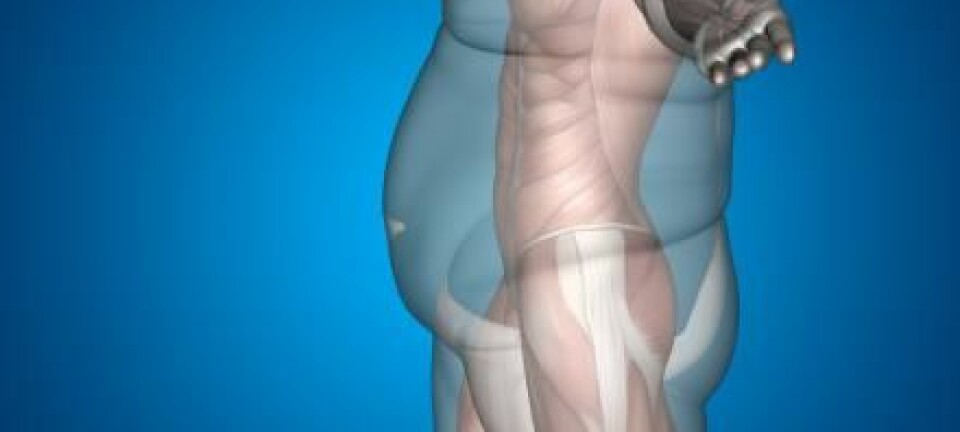
Gut bacteria could one day combat obesity
New research shows that the right combination of gut bacteria plays a role in whether people are fat or thin.
The composition of gut bacteria could be the solution to your weight problems as new research suggests that it plays a significant role in weight management.
Numerous scientific studies have previously demonstrated just this and a new study shows which gut bacteria could be the difference between a trim waist or a muffin top.
“This story has unfolded over the past five years, where more and more evidence has emerged to show that the composition of gut bacteria plays an important role in the development of obesity,” says one of the scientists behind the study, Professor Karsten Kristiansen, from the Department of Biology at the University of Copenhagen, Denmark.
“Our results are the latest in a line of research and the next step on the way towards one day being able to treat obesity by changing the composition of gut bacteria,” he says.
The new study is published in the scientific journal Nature Medicine.
Severely obese lack certain gut bacteria
In the new study, Kristiansen and colleagues from several Chinese universities conducted a detailed analysis of gut bacteria among 72 severely obese people with a BMI (Body Mass Index) over 35 and of 79 slimmer people with a BMI of 20.
At the same time, the scientists took blood samples from the participants to identify the composition of amino acids.
Kristiansen and colleagues focused on one type of bacteria, B. thetaiotaomicron, in particular. They discovered that this species of bacteria was either completely lacking or present in small quantities in the severely overweight group, and found in higher concentrations in the slim group.
Similarly, scientists discovered that the severely overweight group had a much higher concentration of glutamic acid in the blood than the slimmer group. This amino acid plays an important role in neurotransmitters.
Bacteria produce or breakdown glutamic acid
The connection between the presence of specific bacterial species in the gut and the concentration of glutamic acid in the blood is new and interesting, says Kristiansen.
Many different bacteria live in the gut where some produce glutamic acid, while other break it down.
B. thetaiotaomicron belongs to a group of bacteria, which breaks down glutamic acid. The scientists also discovered a clear connection between the concentration of glutamic acid in the blood, the amount of B. thetaiotaomicron in the gut and obesity.
At the same time, other studies have shown a connection between a high intake of glutamic acid and the risk of developing obesity.
“It’s all connected. The question is what happens when you change the various parts of the chain,” says Kristiansen.
Gut bacteria make fat mice, thin
The scientists took B. thetaiotaomicron from the intestines of the thin group and transplanted them into mice, which were genetically predisposed to be fat.
Their experiments showed that the bacteria took root inside the mice guts and subsequently the mice became thinner.
At the same time, scientists discovered that the presence of the glutamic acid-consuming bacteria in the mice intestines reduced the concentration of glutamic acid in their blood.
“It looks as though glutamic acid in the blood could lead to obesity and the composition of glutamic acid reproducing and consuming bacteria in the guts of people influences whether they put weight on or not,” says Kristiansen, but stresses that they have so far only established a correlation between the two.
Important knowledge of bacterial contribution to obesity and diabetes
According to Professor Oluf Borbye Pedersen, the new research result might help scientists to one day develop capsules with healthy bacteria, which can contribute to overcoming obesity in ten to fifteen years.
He is professor and research leader at the Lundbeck Foundation Center LuCamp and Novo Nordisk Foundation Center for Basic Metabolic Research at the University of Copenhagen, Denmark.
“It’s a thorough study that is a really big step towards our understanding of the connection between obesity and the composition of gut bacteria,” says Pedersen.
“If the research results stand up then they have some interesting perspectives in connection to the fight of obesity and type-2 diabetes, for example. If you map and closely characterise clusters of various bacterial species in the extreme complex ecology we have in the intestines, then the next step could be to make treatment trials where you use the next generation of probiotics,” he says.
--------------------------
Read more in the Danish version of this story on Videnskab.dk
Translated by: Catherine Jex










